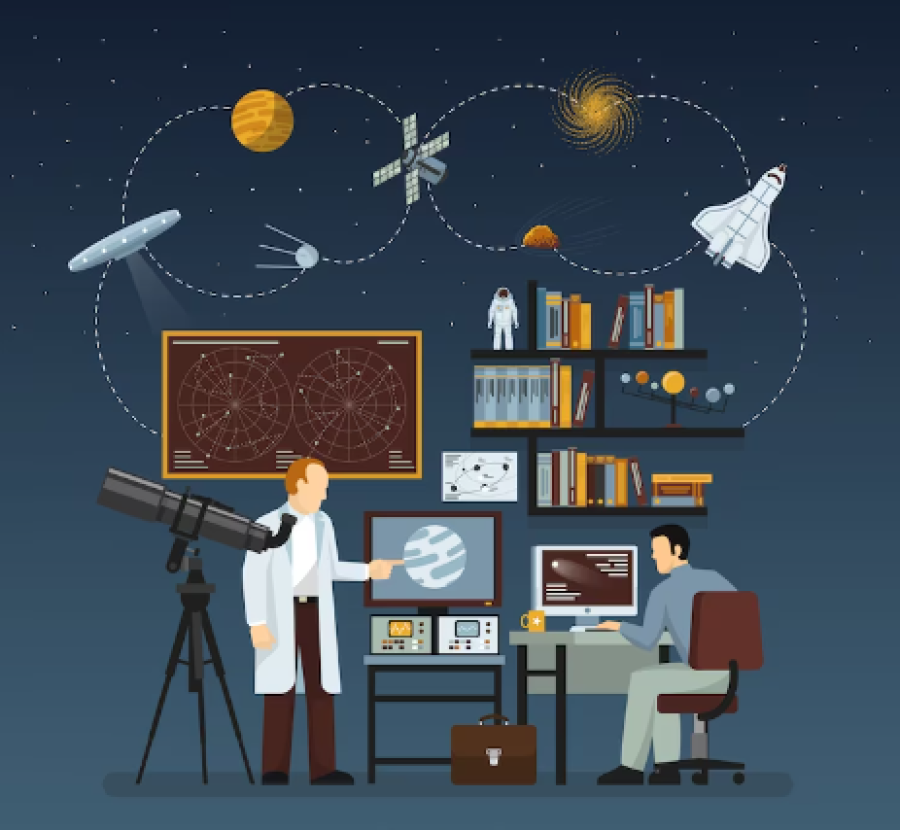AI Unveiled: Exploring its Cosmic Role in Astrophysics and Space Exploration
In the vast expanse of the cosmos, humanity's quest for understanding the universe has reached new horizons with the integration of Artificial Intelligence (AI) into astrophysics. From deciphering complex astronomical data to recognizing celestial patterns and guiding space exploration, AI is proving to be an invaluable ally in unlocking the mysteries of the universe. In this blog, we journey through the cosmos to explore AI's remarkable contributions in astrophysics and space exploration, illuminating its role in analyzing data, pattern recognition, and shaping our understanding of the universe.
1. Astounding Data Analysis: Unraveling the Cosmic Data Tapestry
The cosmos is teeming with data – from distant galaxies to cosmic microwave background radiation. Analyzing this massive influx of data requires precision and efficiency beyond human capabilities. Enter AI, equipped with algorithms designed to process, categorize, and analyze astronomical data with incredible speed and accuracy.
AI algorithms can identify galaxies, stars, and other celestial objects in astronomical images, enabling scientists to catalog and understand the composition of the universe on a scale previously thought unattainable. By automating the data analysis process, AI empowers astrophysicists to focus on deciphering the intricacies of cosmic phenomena.
2. Pattern Recognition: Illuminating Cosmic Constellations
The universe is a canvas painted with patterns – from star clusters to gravitational waves. AI excels in recognizing and interpreting these patterns, offering insights that expand our understanding of the universe's underlying dynamics.
Machine learning algorithms can identify anomalies in starlight caused by exoplanets passing in front of their host stars. This technique, known as transit photometry, has led to the discovery of thousands of exoplanets, revolutionizing our perception of planetary systems beyond our own.
3. Guiding Space Exploration: AI at the Helm of Discovery
In the quest to explore space, AI is playing a pivotal role in guiding missions, making autonomous decisions, and ensuring the success of interstellar endeavors. Spacecraft equipped with AI systems can adapt to unexpected situations, optimize energy consumption, and even analyze data from distant planets in real-time.
AI-driven rovers on Mars, for instance, analyze the Martian surface to detect signs of past or present life. These rovers navigate challenging terrain, avoiding obstacles and selecting scientifically valuable targets for analysis.
4. Ethical Considerations and Future Prospects
While AI in astrophysics presents limitless possibilities, ethical considerations emerge. Ensuring the ethical use of AI in space exploration involves addressing issues related to data privacy, responsible exploration, and potential impacts on extraterrestrial ecosystems.
Conclusion
The cosmic dance between AI and astrophysics is a symphony of exploration, understanding, and discovery. By enhancing data analysis, illuminating patterns, and guiding space missions, AI is amplifying our ability to unravel the universe's secrets. As we continue to venture into the cosmos, AI stands as a beacon of innovation, casting light on the darkest corners of space and expanding the boundaries of human knowledge.





Comments (0)